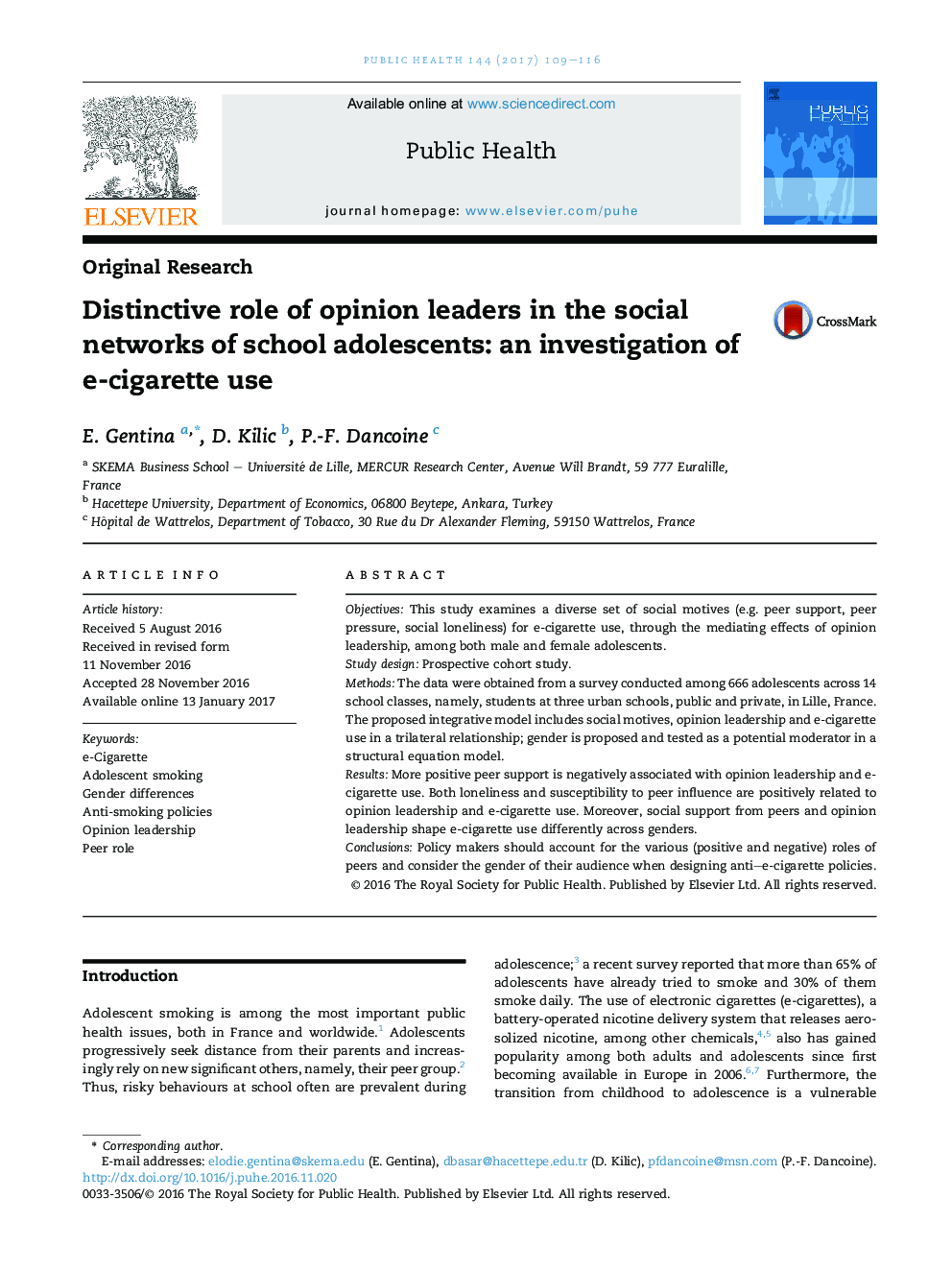| Article ID | Journal | Published Year | Pages | File Type |
|---|---|---|---|---|
| 5122800 | Public Health | 2017 | 8 Pages |
â¢Various roles of peers should be considered while constructing anti-smoking policies.â¢Peer support is negatively associated with opinion leadership and e-cigarette use.â¢Loneliness is positively associated with opinion leadership and e-cigarette use.â¢Peer influence is positively associated with opinion leadership and e-cigarette use.â¢Peer support and opinion leadership shape e-cigarette use differently across gender.
ObjectivesThis study examines a diverse set of social motives (e.g. peer support, peer pressure, social loneliness) for e-cigarette use, through the mediating effects of opinion leadership, among both male and female adolescents.Study designProspective cohort study.MethodsThe data were obtained from a survey conducted among 666 adolescents across 14 school classes, namely, students at three urban schools, public and private, in Lille, France. The proposed integrative model includes social motives, opinion leadership and e-cigarette use in a trilateral relationship; gender is proposed and tested as a potential moderator in a structural equation model.ResultsMore positive peer support is negatively associated with opinion leadership and e-cigarette use. Both loneliness and susceptibility to peer influence are positively related to opinion leadership and e-cigarette use. Moreover, social support from peers and opinion leadership shape e-cigarette use differently across genders.ConclusionsPolicy makers should account for the various (positive and negative) roles of peers and consider the gender of their audience when designing anti-e-cigarette policies.
